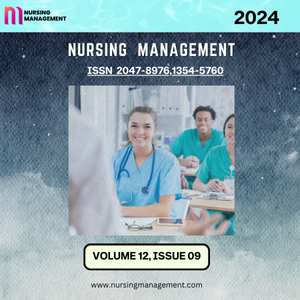Menu
Volume 12 Issue 6
Factors Affecting Thai Fathers’ Self-Efficacy to Support Exclusive Breastfeeding
Preeyakamon Krikitrat,Nantaporn Sansiriphun,Jirawan Deeluea,Sirirat Sonted,Wongduean Chaiwipassatorn andDaniel Bressington
1Department of Obstetrics and Gynecology Nursing, Faculty of Nursing, Chiang Mai University, 239 Huay Kaew Rd, Tambon Su Thep, Amphoe Mueang Chiang Mai, Chang Wat Chiang Mai 50200, Thailand
2Maharaj Nakorn Chiang Mai Hospital, Faculty of Medicine, Chiang Mai University, Amphoe Mueang Chiang Mai, Chang Wat Chiang Mai 50200, Thailand
3Visiting Professor, Faculty of Nursing, Chiang Mai University, Amphoe Mueang Chiang Mai, Chang Wat Chiang Mai 50200, Thailand
4Faculty of Health, Charles Darwin University, Ellengowan Drive, Casuarina, NT 0810, Australia
Author to whom correspondence should be addressed.
Abstract
Background: Breastfeeding is the ideal approach for feeding infants and is an important public health consideration. Successful exclusive breastfeeding initiation and duration is influenced by fathers’ support. Paternal self-efficacy to support breastfeeding has also been shown to mediate infant feeding practices. The aim of this study was to investigate factors associated with Thai fathers’ self-efficacy to support maternal exclusive breastfeeding. Methods: We adopted a cross-sectional survey design for this study. In total, 215 Thai fathers who had a partner with a term (37–42 weeks) pregnancy participated in the study. Data were collected from antenatal care clinics at two hospitals in Northern Thailand between June and August 2022. Participants completed a sociodemographic questionnaire, the Fathers’ Attitude toward Exclusive Breastfeeding questionnaire, the Fathers’ Knowledge about Exclusive Breastfeeding questionnaire, and the Breastfeeding Self-Efficacy Scale (Short-Form). Multiple linear regression and hierarchical regression were used to analyze factors influencing Thai fathers’ self-efficacy to support maternal exclusive breastfeeding. Results: The mean breastfeeding self-efficacy score was 52.94 (SD = 8.58), indicating that fathers were confident they were able to support their partners’ breastfeeding. Regression analysis revealed family type, fathers’ attitude toward, and fathers’ knowledge about exclusive breastfeeding significantly explaining 14.90% of the variance in paternal breastfeeding support self-efficacy. However, fathers’ age, education, employment, income, and number of living children were not associated with their self-efficacy. Conclusions: The results demonstrated that family type and fathers’ attitudes/knowledge about breastfeeding influenced their self-efficacy to support exclusive breastfeeding. Nurses should consider implementing breastfeeding interventions specific to fathers to enhance their attitudes and knowledge about breastfeeding, including increasing fathers’ self-efficacy to support maternal exclusive breastfeeding efforts.
Keywords: fathers; self-efficacy; exclusive breastfeeding; affecting factors
Editorial Board
Editor-In-Chief
Christopher J. Hayes, University of California, BerkeleyCalifornia
Associate Editors
David P. Williams, Johns Hopkins University
Sophia L. Brooks, University of Sydney
Arjun K. Mehta, University of Cambridge
Isabella S. Johnson, University of Toronto
Eli T. Garcia, University of Oxford
Grace M. Lewis, Stanford University
Mason R. Chen, University of Melbourne

